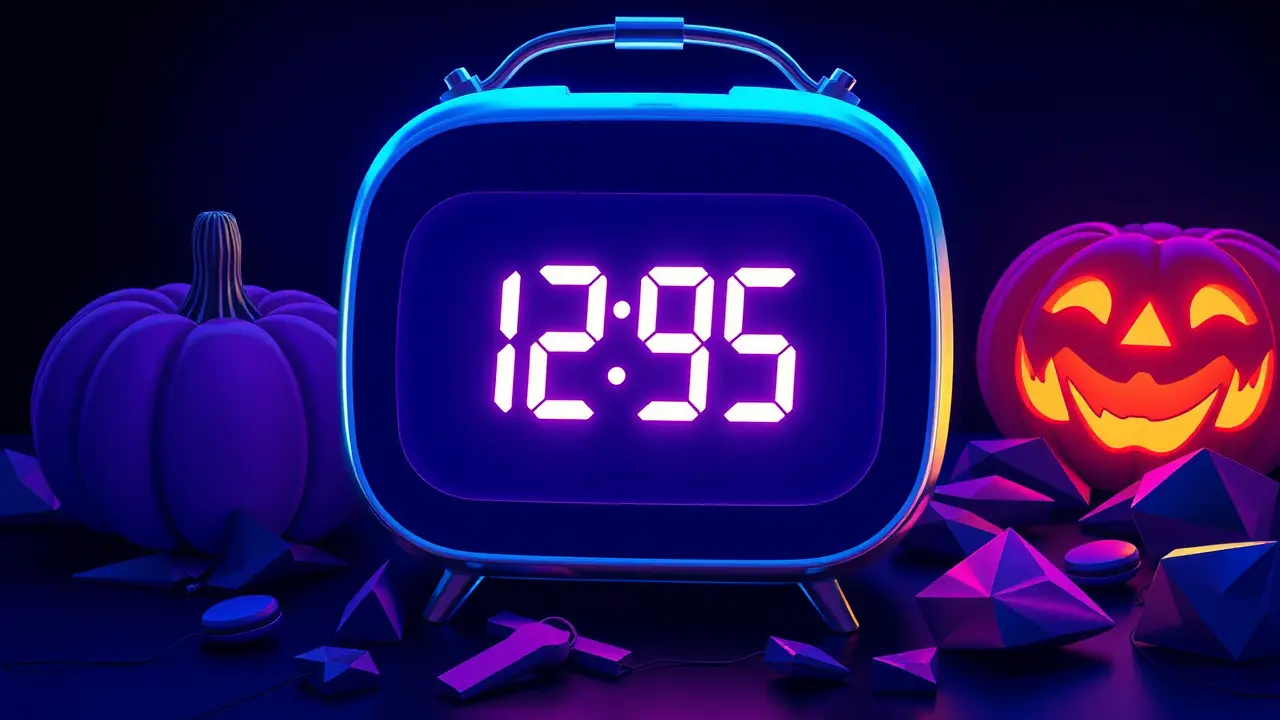
Entertainmentculture & trendsInfluencers
Christian Influencers Are Throwing Their Hatch Clocks in the Trash
LI
Lily Harper
2 days ago7 min read
The digital pews are in an uproar, darlings, and this time it’s not over a controversial sermon or a celebrity pastor's new jet; it’s over an alarm clock. The Hatch Sleep device, that chic, glowing sunrise simulator that became the must-have bedside accessory for the wellness-and-aesthetics crowd, has found itself at the center of a holy war after its parent company decided to get spooky for Halloween.The controversy erupted when the brand rolled out horror-themed programming and advertisements, a move that has the kingdom of Christian influencers seeing red—or perhaps a hellish shade of orange—leading to a very public and dramatic exodus, with videos of these once-beloved devices being unceremoniously dumped into trash cans going viral across social media. It’s a classic tale of brand overreach, a collision of sacred and secular that plays out like a particularly juicy episode of reality TV, complete with righteous indignation, performative defiance, and the swift, unforgiving judgment of the algorithm.For those who live their lives online, where personal brand and faith are inextricably linked, every product endorsement is a testament to their values, and the Hatch clock had become a quiet, glowing symbol of a curated, peaceful, and morally sound morning routine. Its features—gentle wake-up light, soothing sounds—were perfectly aligned with a lifestyle that promotes tranquility and intentionality, principles that many faith-based creators preach.But the introduction of horror content, with its associations with fear, the macabre, and themes often at odds with conservative Christian teachings, was a tonal betrayal that could not be ignored. It was as if a trusted friend had suddenly shown up to a prayer breakfast in a full-on demon costume; the cognitive dissonance was simply too great.The response was swift and theatrical. Influencers with followings in the hundreds of thousands began posting their 'breakup' videos with the brand, their tone a mix of genuine disappointment and polished content creation.They spoke of being 'unequally yoked' with a company that would promote such darkness, using language that resonated deeply with their audience. The act of trashing the clock became a powerful visual metaphor—a cleansing, a drawing of a line in the sand.It was a declaration that no amount of aesthetic appeal or functional utility could compensate for a perceived alignment with values that contradict their own. This is about more than just an alarm clock; it’s a potent case study in the power and perils of the influencer economy and the hyper-sensitivity of modern brand-customer relationships.Companies now navigate a minefield where every marketing decision is scrutinized through countless ideological lenses. For a brand like Hatch, which built its reputation on wellness and calm, the foray into horror was likely seen as a fun, seasonal experiment to engage a broader audience.Instead, it alienated a core, highly vocal, and incredibly loyal demographic that values consistency and perceived moral purity above all else. The financial and reputational fallout is yet to be fully tallied, but the spectacle serves as a stark reminder that in today's market, a product is never just a product—it's a symbol, a statement, and for the influencers who champion them, a part of their ministry. The trash cans are filling, the comments sections are raging, and the Hatch clock's gentle glow has been extinguished in these Christian homes, replaced by the harsh light of a very public cancellation.
#featured
#Hatch
#Christian influencers
#controversy
#Halloween ads
#alarm clocks
#boycott
Stay Informed. Act Smarter.
Get weekly highlights, major headlines, and expert insights — then put your knowledge to work in our live prediction markets.
Comments
It’s quiet here...Start the conversation by leaving the first comment.
© 2025 Outpoll Service LTD. All rights reserved.